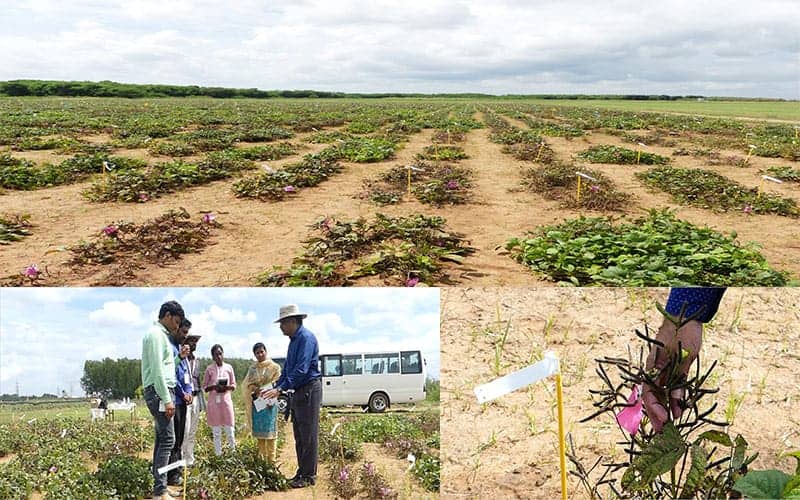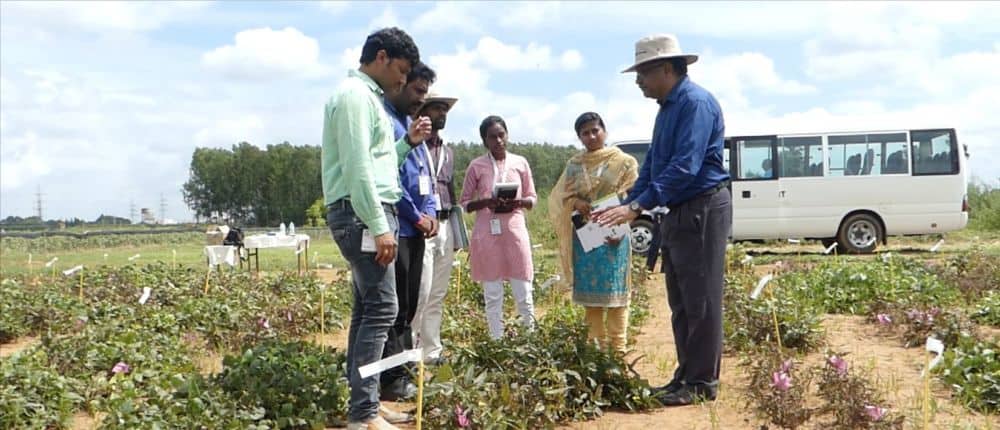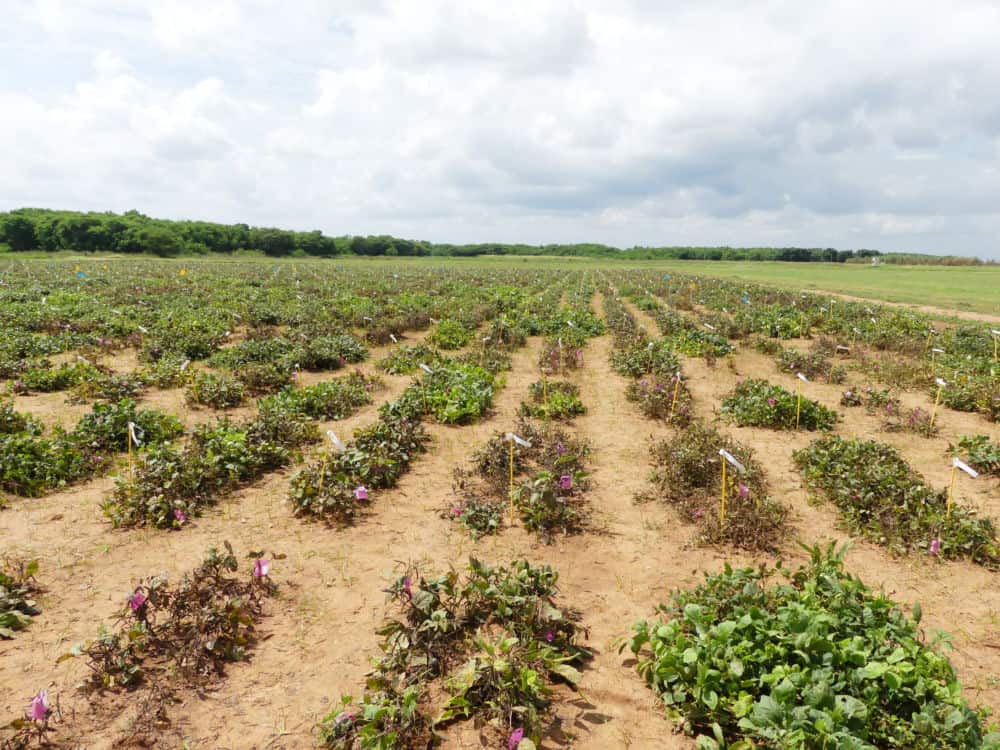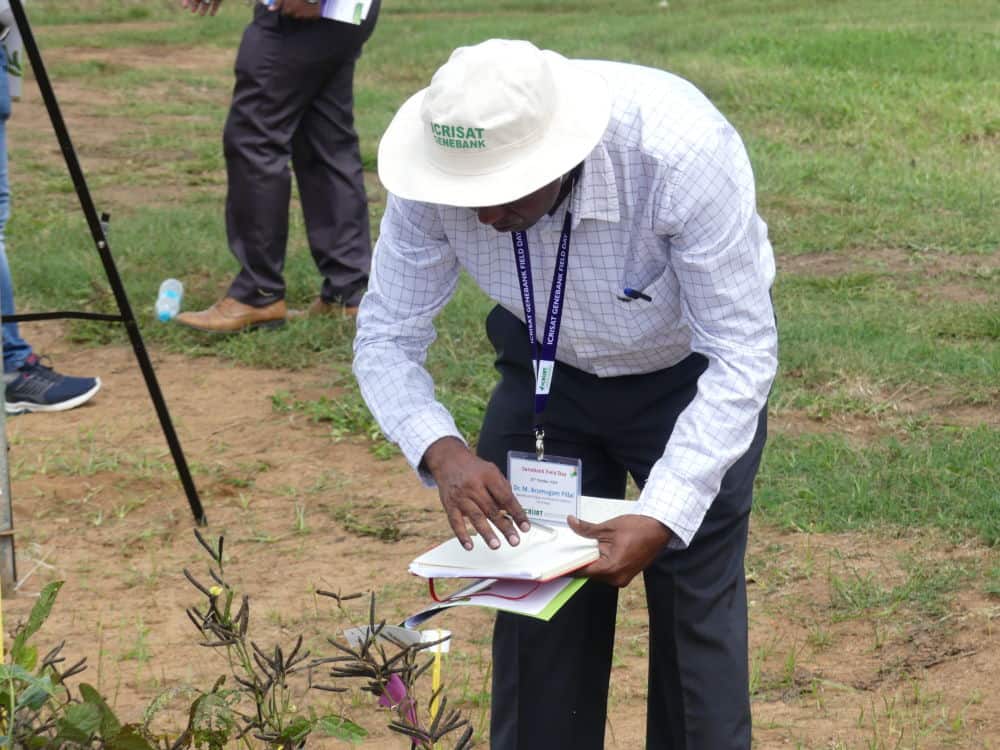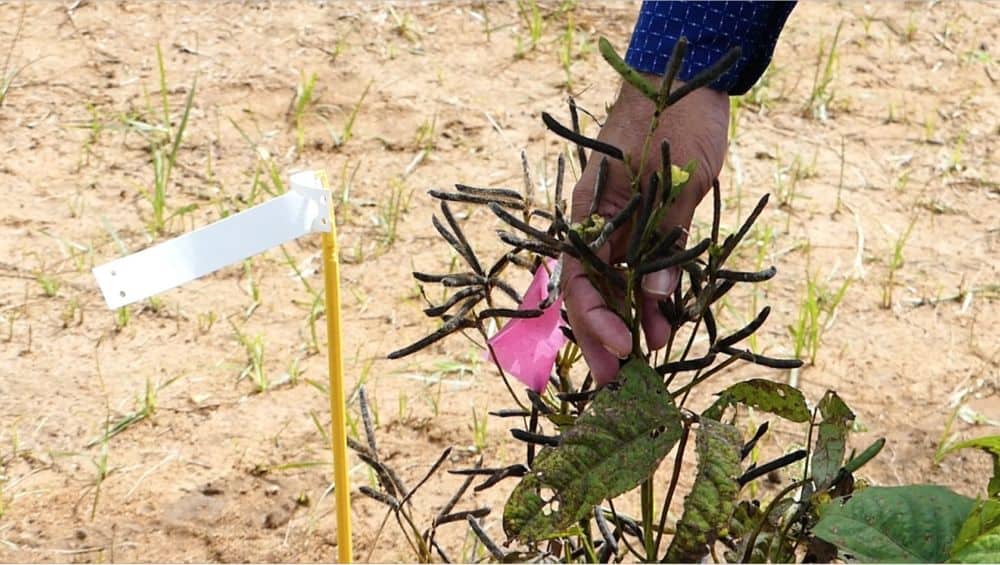Hyderabad: Scientists of World Vegetable Center (WorldVeg) have planted 2266 accessions and 5 national check varieties of black gram at its South Asia office research farm located at ICRISAT campus in Hyderabad.
The black gram collection was shared with WorldVeg by the National Bureau of Plant Genetic Resources (NBPGR), New Delhi. This has been done under the Department of Biotechnology, Government of India funded project on “Genetic Enhancement of Minor Pulses”.
Speaking to siasat.com during the field day on 25 October, Dr. Ramakrishnan Nair, Global Plant Breeder-Legumes, WorldVeg said, “Black gram originated in India and has been in cultivation since ancient times. It has a protein content of about 24% and is also a source for minerals like iron, calcium and potassium. Dishes made from black gram include dal, vada and it is one of the major ingredients in preparation of idli and dosa (which involves fermentation of the batter made from grains).”
Dr. Nair further says that in addition, it is grown for sprouts, as livestock feed and as a green manure crop. Black gram easily fits into the cereal-based cropping systems, due to its short duration (70-75 days).
The average productivity of the crop is still below 500 kg/ha. Major constraints in improving the productivity of black gram are susceptibility of commonly grown varieties to Mungbean Yellow Mosaic Disease (MYMD), dry root rot and insect pests such as stem fly and bruchids.
There is tremendous variation in the collection for important traits and will be very useful for black gram varietal improvement, according to Dr. Nair.

